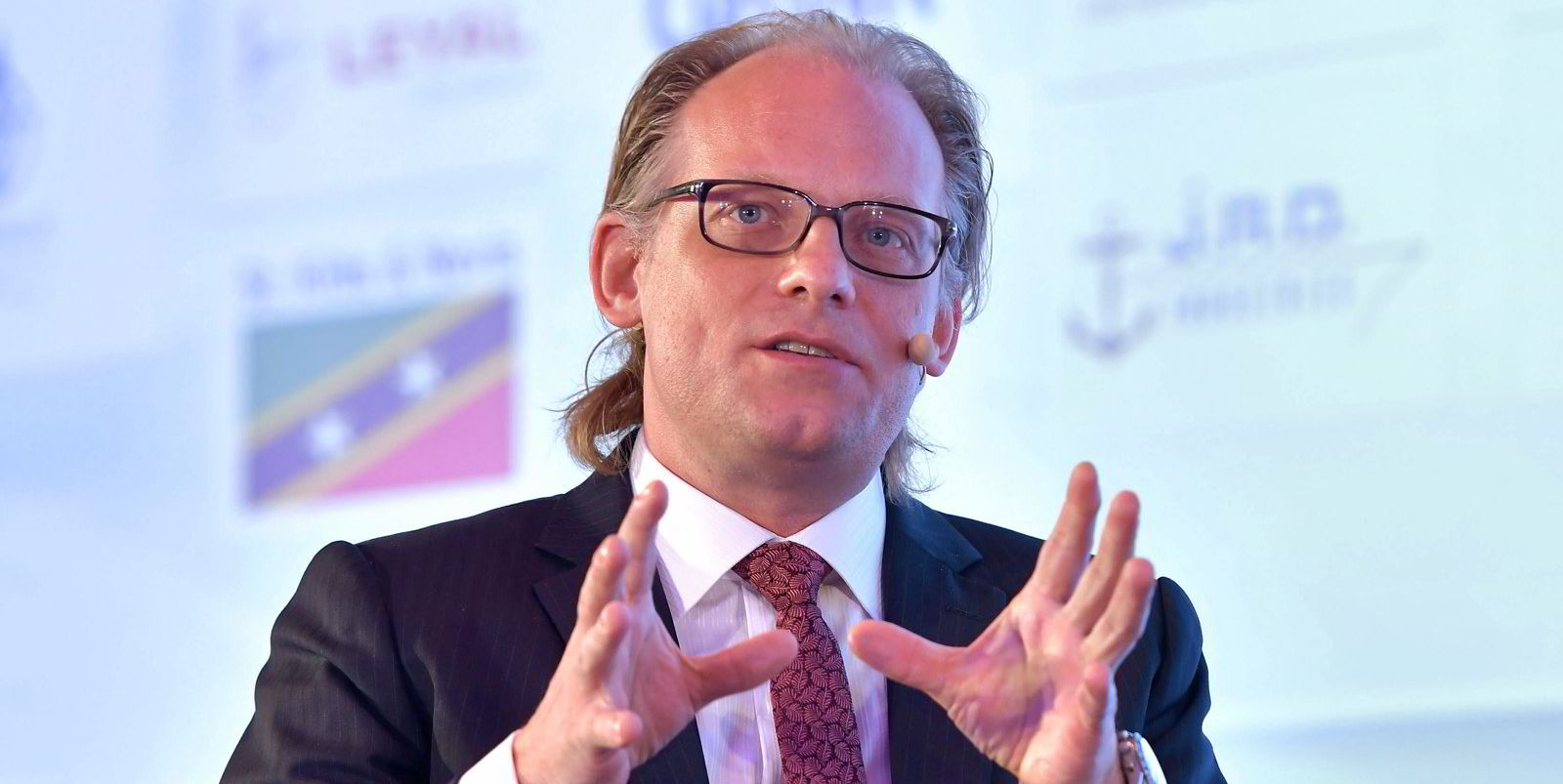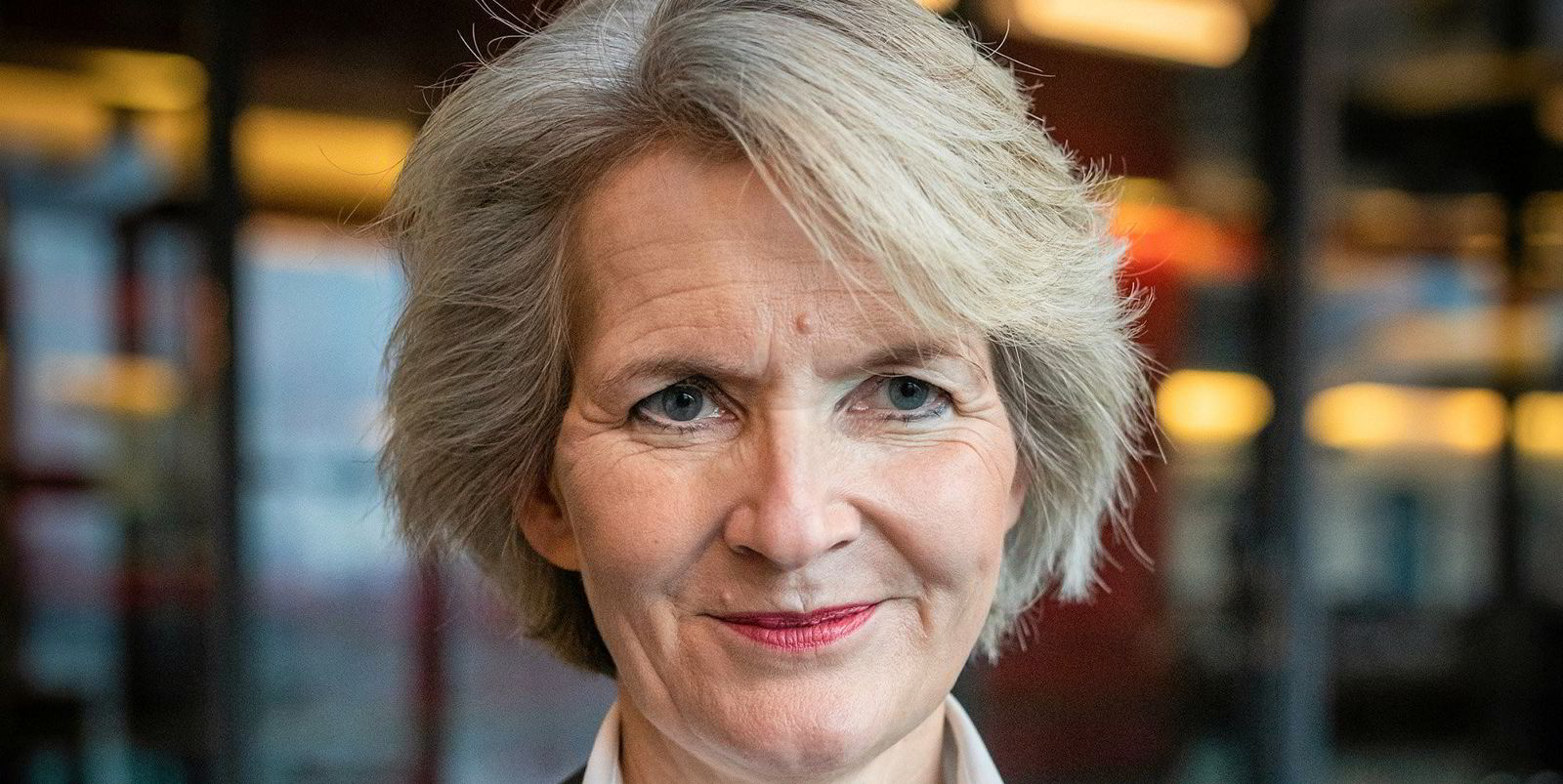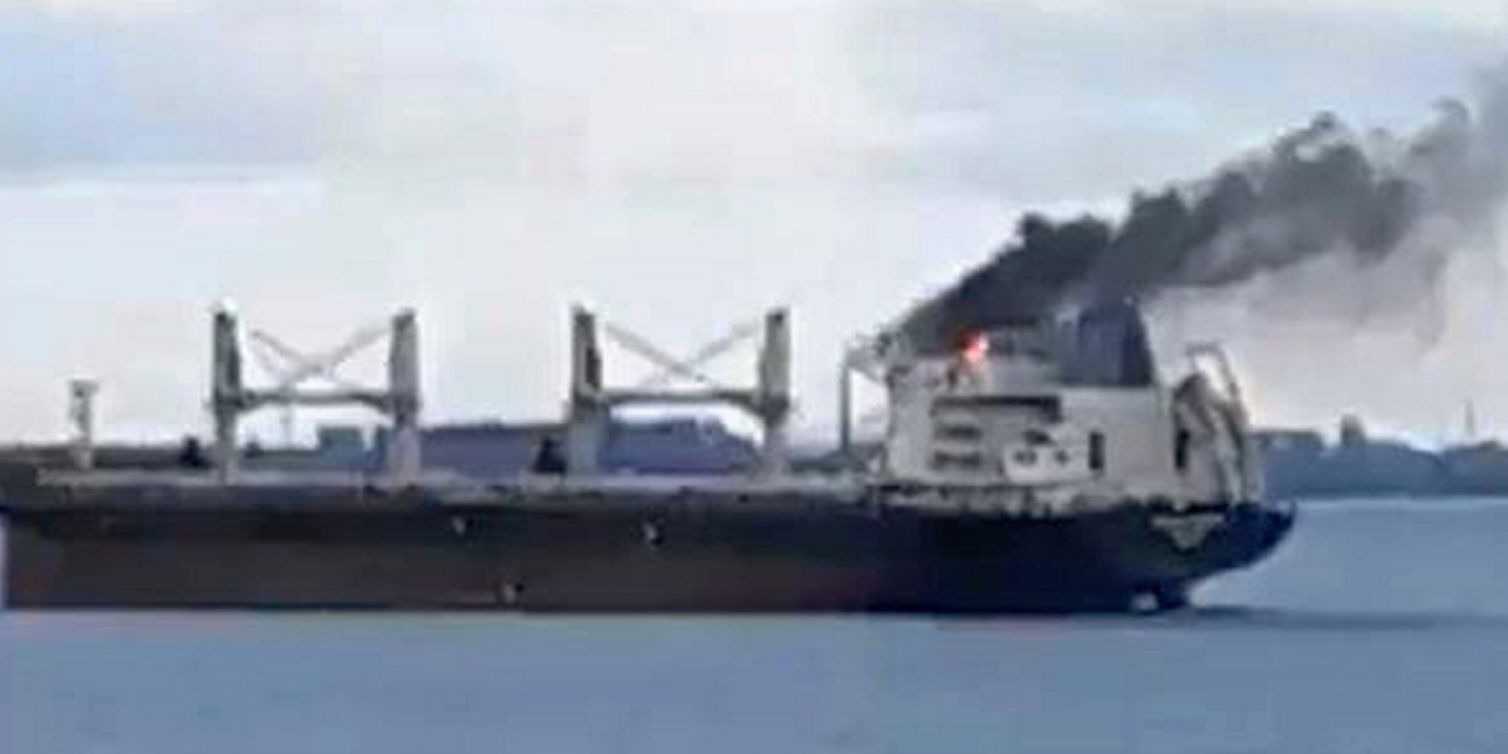German shipowners have called for the release of ships, and measures to ensure the safety of seafarers stranded in Ukraine.
“We demand that all ships and their crews be allowed to leave the conflict zone unharmed,” said Gaby Bornheim, president of the German shipowners’ association VDR.
“Russia must respect the freedom of navigation. Uninvolved merchant vessels must not be attacked.”
Bornheim told an annual press briefing yesterday that Ukrainian and Russian seafarers play an important role in Germany’s merchant fleet.
An estimated 5,000 seafarers from both countries work on board German vessels, often on the same ship, she said.
“People from dozens of different countries live and work on board the ships of Germany’s merchant fleet — including thousands of Ukrainian and Russian seafarers,” she said.
“Given these and other circumstances, we are shocked by current developments and condemn Russia’s war of aggression against Ukraine.”
Crew members from Russia and Ukraine collectively make up 14.5% of the 1.89m seafarers worldwide.
About 200,000 are Russian and 76,000 Ukrainian.
“The safety of our seafarers is our top priority,” Bornheim said.
“We call on all parties to ensure that — in addition to the Ukrainian population — the men and women on board, regardless of their nationality, do not become victims of this war.”
The comments came as figures confirmed the decline of the German fleet, despite the booming container markets.
It remains the world’s sixth-largest shipping nation and continues to operate the world’s second-largest container ship fleet after China.
But its share of the global merchant fleet shrank by 0.7% year on year to 3.8% at the end of 2021, according to VDR figures.
Some 1,917 ships with a combined gross tonnage of 46.1m were listed in German shipping registers, 84 fewer than in 2020.
More than 45% fly the flag of a European Union member state, especially Portugal, Cyprus and Malta.
The number of ships sailing under the German flag stood at 275.
Unequal recovery
Bornheim noted that the recovery of some shipping markets is not being felt by all domestic companies.
“We should not be blinded by the positive economic results of some large shipping companies.”
The vast majority remain small to medium-sized outfits with fewer than 10 vessels.
Weakened by a decade of crisis, they have not benefited from the upswing in markets, Bornheim said.
Smaller companies “would need more than just one year of positive returns to be able to financially shoulder the challenges of the future, especially when it comes to making the needed investments, such as for climate protection”.

Bornheim said the industry has to make a concerted effort if it is to be carbon neutral by 2050.
VDR managing director Martin Kroger added that shipping needs a “revolution in fuels”.
“Which climate-friendly fuel will soon be powering seagoing vessels is still an open question,” he said.
“The engines that could make shipping carbon neutral in parts already exist today — the main thing missing is the right fuel.”




